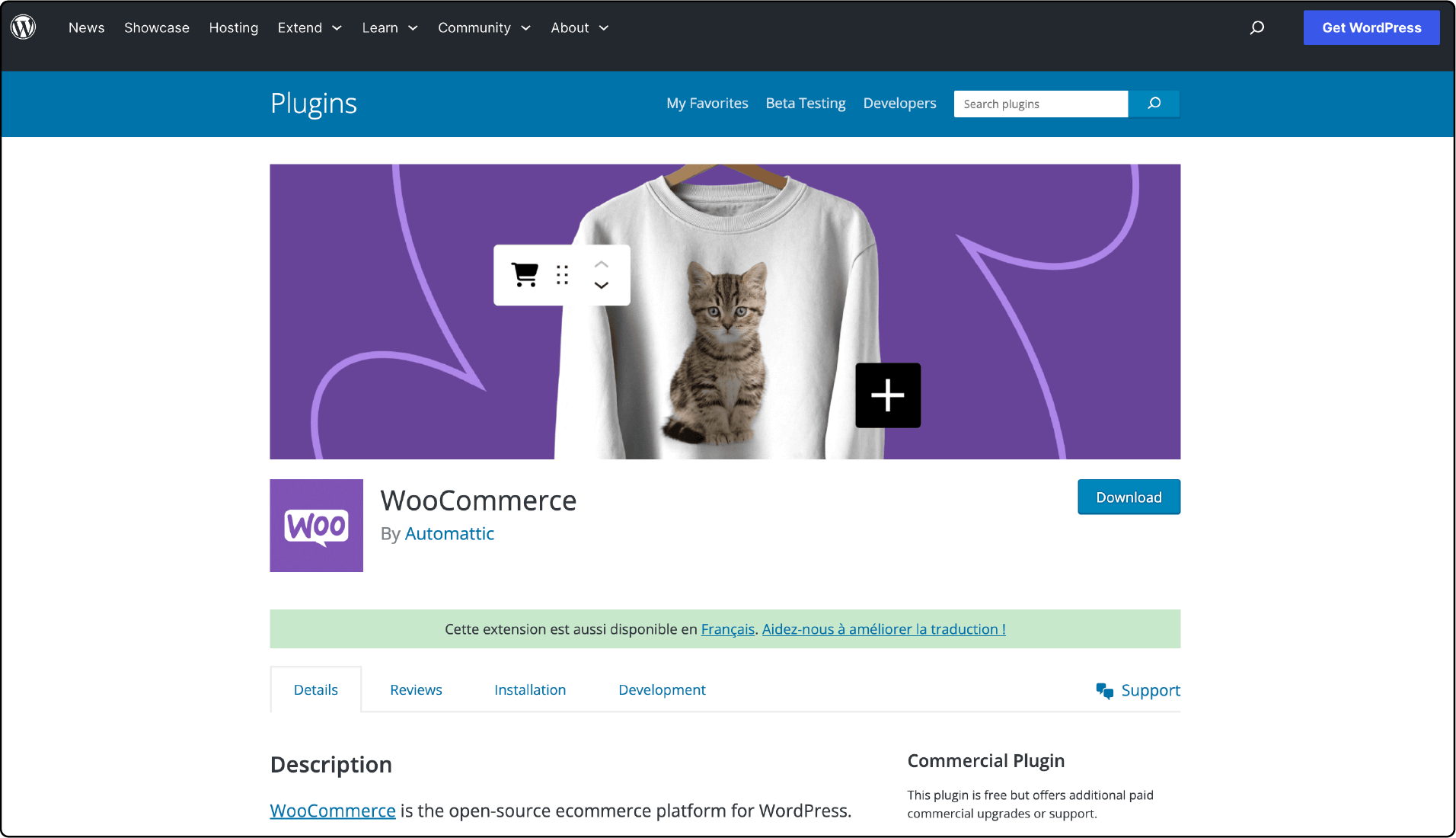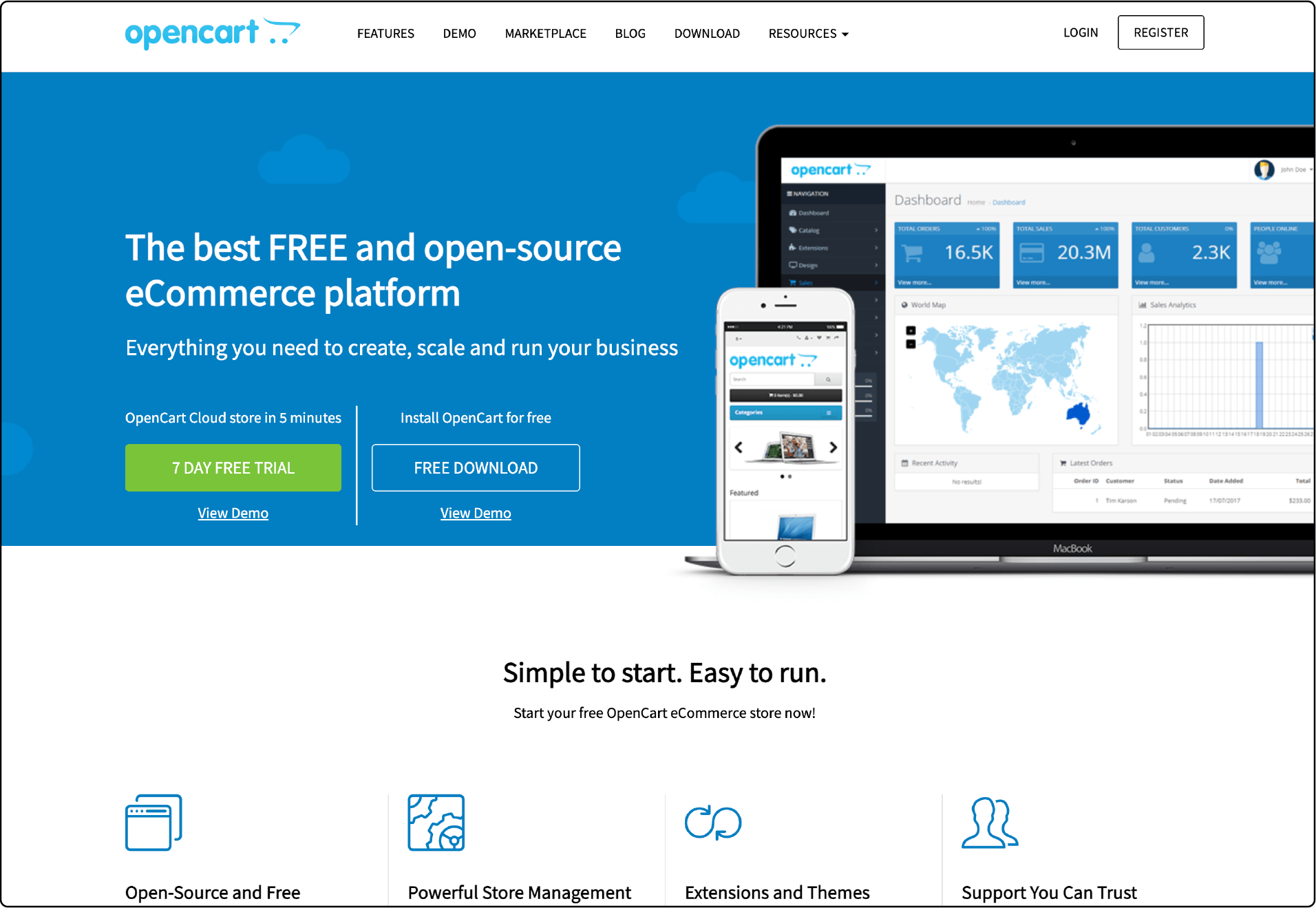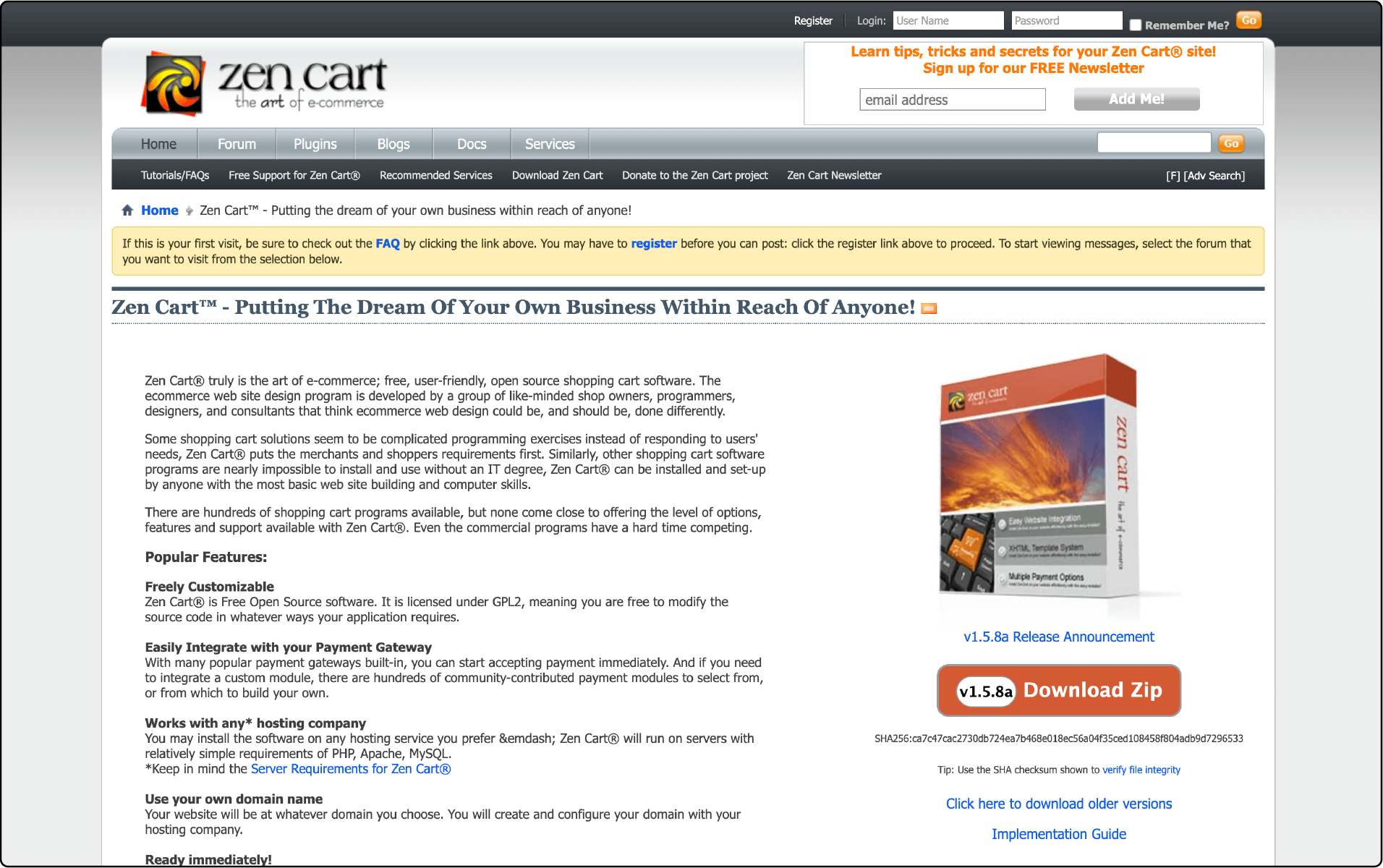
8 Best Magento Alternatives: Hosted and Open Source Platforms
Magento alternatives fall into two categories: website builders, known as Software as a Service (SaaS), and open-source platforms. Website builders offer a ready-made solution, while open-source platforms like Magento allow extensive customization with coding knowledge. This article guides you through various ecommerce website builders and open-source alternatives to Magento, presenting their pros and cons for comparison.
Key Takeaways
-
Discover diverse Magento alternatives like Shopify, BigCommerce, WooCommerce, and PrestaShop to fit your specific needs for your ecommerce store performance.
-
Explore user-friendly SaaS platforms or customizable open-source options catering to different budgets and technical expertise.
-
Learn how factors like business size, budget, and technical expertise influence your choice of platform.
-
Compare areas in each platform's features, pros, and cons to find the perfect ecommerce fit for your business.
-
Maximize your potential by strategically integrating your platform with payment gateways, shipping providers, and marketing automation tools.
Factors to Consider Before Choosing a Magento Alternative
1. Business Needs
It's essential to start by evaluating your current eCommerce requirements. It includes considering the size of your product catalog, understanding your target audience, and identifying your sales channels. Ensure that the new platform you choose can effectively meet these requirements. The goal is to find a solution that aligns with your business needs so you don't compromise functionality or customer experience.
2. Total Cost of Ownership
Moving to a different eCommerce platform involves more than just the upfront cost of the new software. You must account for various expenses, including migration costs, potential development expenditures, and ongoing subscription fees. To make an informed decision, calculate the total cost of ownership (TCO) associated with the migration. It will help you determine whether the switch is financially beneficial in the long run.
3. Data Migration
Data migration can be one of the most challenging aspects of transitioning to a new platform. It is especially true if you have a substantial customer database, a vast product catalog, and a detailed order history. Following a detailed ecommerce migration checklist is crucial to ensure a smooth and error-free data transfer. Avoid disruptions affecting customer trust and satisfaction during the migration process.
4. Customization and Integration
Many businesses using Magento benefit from its flexibility and extensive plugin ecosystem, often leading to highly customized setups. When considering an alternative platform, carefully review the level of customization and integration your business relies on. Ensure the chosen alternative can replicate your current setup or accommodate these customizations.
5. SEO Impact
A poorly executed migration can significantly impact your website's search engine rankings. It can result in a loss of organic traffic and revenue. Therefore, it's crucial to consider the SEO implications of switching platforms. Choose an alternative platform that supports SEO best practices and provides tools or features to help you maintain or improve your search visibility during and after the migration.
6. Downtime and Transition
Transitioning to a new ecommerce platform may involve some website downtime during the migration and transition processes. It's essential to plan for this potential downtime and communicate any changes to your customers. Ensuring a smooth shopping experience during the switch is vital to minimize revenue loss.
7. Future Scalability
While addressing your current needs is crucial, it's equally important to think about the long-term growth of your business. Consider how the chosen platform can adapt to your evolving requirements and expanding operations. Opt for a solution that offers scalability, allowing your e-commerce business to thrive in the present and future as it grows and evolves.
Important Features to Consider in Magento Alternatives
1. Website Builder Features
Magento Commerce excels in providing extensive website customization options. However, when exploring alternatives, prioritize platforms that offer a similarly comprehensive and user-friendly online store builder. It ensures you can maintain control over your website.
2. Templates and Themes
Look for an e-commerce platform like Magento that provides customizable themes and templates. It enables you to tailor your website's design, usability, and marketing strategies to your preferences without starting from scratch. This approach saves both time and resources.
3. Easy Plug-in Integrations
Magento's app store boasts many extensions, covering various functions from accounting to website optimization. Look for an e-commerce platform that provides a range of free and user-friendly plug-ins, allowing you to enhance your website's capabilities within minutes. It will help you streamline the process of expanding your website's functionality effectively.
Types of Magento Alternatives
Numerous alternatives to Magento exist, including Volusion, Weebly, Ecwid, osCommerce, X-Cart, nopCommerce, VirtueMart, Drupal Commerce, Joomla, Salesforce Commerce Cloud, and more. These alternatives can be categorized into two primary types:
1. Ecommerce Website Builders (Hosted Ecommerce Platforms)
Ecommerce website builders, or Software as a Service (SaaS), offer ready-to-use solutions. These platforms allow merchants to establish an online store without concerns about infrastructure complexities. Subscription plans are available at flat-fee rates, tailored to the merchant’s needs and additional features.
2. Open Source Platforms
Open-source platforms, such as Magento, provide extensive customization options. These platforms are free to install, enabling the creation of various ecommerce stores by customizing templates or building entirely new sites. While the software is free, merchants should budget for hosting, security, and maintenance expenses.
Best Magento Alternatives: Ecommerce Website Builders
1. Shopify

Shopify is one of the most popular SaaS eCommerce applications with over 60,000+ and numerous free/premium themes available. Users get all the essential ecommerce features in different tiers for a fixed subscription. You can manage orders, payments, inventory, and shipping and access valuable store data via the dashboard.
Features:
- Abandoned cart recovery to recoup lost sales.
- Multi-channel integration for selling on social media and Amazon.
- Shipping partnerships with USPS, DHL Express, UPS, and Canada Post.
- Product variants and categories.
- Supports 100+ payment gateways, including Shopify Payments.
- Ability to sell digital and service goods.
Pros:
- All-inclusive subscription covers hosting, domain, SSL encryption, etc.
- Unlimited bandwidth and online storage for extensive product catalogs.
- Detailed analytics and reporting tools for sales and customer insights -Point of sale functionality and automatic tax calculator.
- Built-in fraud prevention for secure shopping.
- Seamless integration with Amazon, eBay, and Instagram.
Cons:
- Limited customization compared to open-source platforms.
- Monthly payments, additional third-party app expenses, and transaction fees (total cost increases with business growth).
2. Wix eCommerce

Wix eCommerce offers a user-friendly online store builder ideal for small businesses and startups. It provides streamlined, customizable e-commerce features through the Wix Stores feature. With 250+ add-ons and 500+ industry-specific templates, you can enhance your website's functionality and design.
Features:
- Ability to sell physical, digital, and service products.
- Product display templates.
- Product zoom feature to enhance the shopping experience.
- Accepts 15+ payment methods, including PayPal, Stripe, and Square.
- Abandoned cart recovery.
- Multichannel selling on Facebook, Instagram, Pinterest, and Amazon.
- Wix Ascend: An all-in-one marketing tool (subscription-based).
- Customizable checkout to match industry standards.
Pros:
- User-friendly design tools require minimal tech expertise.
- "Buy now, pay later" payment option.
- Support for multiple sales channels, including Instagram, Facebook, and Amazon.
- Out-of-the-box SSL certification, secure payments, and PCI DSS compliance.
Cons:
- May not be suitable for large eCommerce businesses with complex needs.
- Limited stock management notification.
- Migrating from Wix to another platform can be challenging.
3. BigCommerce

BigCommerce offers attractive site templates and reliable uptime. It operates as an Open-SaaS platform, providing an ecommerce solution through monthly fees.
Features:
- Sell physical, digital, and service products without additional apps (unique feature).
- Zero transaction fees, unlike Shopify.
- Processes over 100 currencies, supporting 65+ payment gateways.
- BigCommerce Shipping app with up to 80% discounts on USPS, DHL, and FedEx.
- Abandoned cart recovery.
- 600+ apps.
- Multi-channel selling on social media, eBay, Amazon, and more.
Pros:
- Easy multi-currency sales.
- Real-time third-party shipping calculations.
- Effective reporting tools.
- Built-in product reviews.
- Intuitive drag-and-drop page builder.
- Built-in SEO functions.
- Comprehensive abandoned cart recovery tool.
- GDPR consent feature.
- 15-day free trial.
Cons:
- Additional cost for abandoned cart functionality.
- Annual online sales limits may require a costlier plan if exceeded.
- Limited originality in some free themes.
- Room for improvement in page builder features (recent updates have improved usability).
- Difficulty in modifying free templates.
- Manual handling of VAT MOSS rates.
- The user interface is complex, which can be confusing for beginners.
4. Squarespace Commerce

Squarespace Commerce offers user-friendly tools for effortless website building and online selling. It provides site templates, customizable online store categories, email marketing, SEO functions, and more.
Features:
- Flexible product variants for categorization.
- Ability to sell an unlimited number of products.
- Inventory management by price, name, or remaining stock.
- Sell physical, digital, and service products.
- Automatic emailing.
- Mailchimp integration for professional newsletters.
Pros:
- Innovative templates.
- Ease of use.
- Powerful backend with excellent analytics tools.
- Suitable for selling online courses.
- Excellent image management tools.
- Free domain with annual plans.
Cons:
- Lack of multi-currency selling features.
- Inability to switch templates.
- No support for Google Pay.
- Absence of phone support.
- Limited integration options.
- You’re limited to the range of built-in features.
Best Magento Alternatives: Open Source Platforms
1. WooCommerce

WooCommerce, a primary WordPress plugin, is widely favored in the WordPress community for powering online stores. It offers a straightforward setup suitable for small to mid-sized businesses. Those lacking technical expertise can easily install and configure the plugin to meet their needs.
Features:
- One-click refunds.
- Robust blogging tools leveraging WordPress's capabilities.
- Extensive plugin marketplace, providing flexibility and creative freedom.
Pros:
- User-friendly interface similar to WordPress.
- Supports multi-channel sales via Amazon, eBay, and Walmart integrations.
- Utilizes WordPress's powerful blogging tools.
- Offers one of the largest plugin markets among open-source platforms.
Cons:
- Limited compatibility, exclusive to WordPress-powered websites.
- Potential conflicts among plugins from various global developers.
- Scalability challenges for larger ecommerce sites requiring advanced-level plugins (e.g., for B2B functionality).
- Limited customer support beyond the community of developers.
2. PrestaShop

PrestaShop is a feature-rich open-source eCommerce solution. It's user-friendly, making it accessible for store owners with minimal technical expertise. Installation is straightforward, and the platform offers a simple back-end interface.
Features:
- Partnerships with 250+ agencies for web design and marketing expertise.
- Supports physical and downloadable products.
- Offers 1,500+ templates.
- Features automated emails, coupon codes, free shipping, and gift wrapping.
- Supports four payment options: Stripe, PayPal, bank transfer, and checks.
Pros:
- Simplified product image and description management with drag-and-drop functionality.
- CRM with various user groups and automated emails.
- Flexible product configuration and structured content generation workflow.
- Efficient functioning without extensive server resources.
Cons:
- Scalability challenges for businesses with a wide range of products.
- Upgrading PrestaShop to newer versions can be complex, potentially requiring full-fledged migration due to theme or module compatibility issues.
- Limited online documentation and user guides that may be hard to understand.
3. OpenCart

OpenCart offers flexible website design customization and a modern, user-friendly dashboard interface. It provides a variety of pre-designed themes for convenient store setup during migration. Built-in features include support for multiple languages, product ratings, downloadable products, recurring payments, and guest checkout.
Features:
- Multi-language and currency options (GBP, USD, Euros).
- Product reviews and ratings.
- Downloadable products.
- Guest checkout.
- Recurring payments.
- Third-party web design agency themes.
Pros:
- Lightweight and fast eCommerce platform.
- Seamless migration from Magento, as both are based on PHP code.
- Over 13,000 modules and 2,700 design themes are available (many free).
Cons:
- Irregular updates.
- Slower checkout process.
- Limited SEO and marketing features.
- Hidden costs for hosting, security, domain, and dedicated support.
4. Zen Cart

Zen Cart, an open-source platform, offers extensive customization potential, although its outdated dashboard may pose navigation challenges. Proficiency in coding allows for greater creative freedom, and a supportive web developer community is available for assistance.
Features:
- Drag-and-drop page editor for user-friendly storefront design.
- Discount and coupon options (percentage or fixed amount).
- Gift certificates.
- 'Call for quote' pricing to conceal product prices for business sales.
- Multiple product images.
- Shipping estimator for cost estimation.
- SEO tools for updating metadata and product descriptions.
Pros:
- Simplified content editing with drag-and-drop functionality.
- Built-in application support for multiple languages and currencies.
- Wide range of customization options.
- Free and open-source software.
Cons:
- May not suit larger businesses with complex requirements.
- Outdated user interface.
- Limited dedicated customer software support options.
- In the absence of a trial, installation on a server is required to assess functionality, which is time-consuming for users.
FAQs
1. What are Magento's main competitors in the e-commerce platform market?
Magento faces competition from various platforms, including SaaS solutions like Shopify, BigCommerce, and Squarespace Commerce. It also includes open-source options like WooCommerce, PrestaShop, and OpenCart. Each platform caters to different needs and budgets, so the best depends on your ecommerce requirements.
2. How do I choose the right Magento alternative for my business?
Choosing the right Magento alternative involves carefully considering factors like your business size, product catalog, budget, technical expertise, and desired level of customization. Research different platforms, compare their features and pricing plans, and use free trials or demos to see which fits your needs and workflow best.
3. Can I migrate my existing Magento store to another platform?
Yes, most alternative platforms offer migration tools or services to help you seamlessly transfer your data and store setup, even if you have thousands of items in your catalog. The complexity and cost of migration may vary depending on the amount of data and customization involved, so be sure to compare options and assess your budget beforehand.
4. What are the key differences between hosted and open-source Magento alternatives?
Hosted platforms like Shopify handle server management and software updates for you, making them user-friendly. However, they charge monthly fees. Open-source platforms like WooCommerce require self-hosting and maintenance through high-quality WordPress hosting but offer greater customization, benefits, and cost-effectiveness.
5. What are the learning curves associated with different Magento alternatives?
SaaS platforms like Shopify are user-friendly with drag-and-drop interfaces, making them easy for beginners or small teams with limited technical expertise. Open-source platforms like WooCommerce may require some learning curve or plugin installation for advanced features. They offer greater customization and potential for growth for larger teams.
6. Are there any cost-effective Magento alternatives for small retail businesses with limited budgets?
Open-source platforms like WooCommerce and OpenCart are free to download and use, making them ideal for budget-conscious businesses. You may need to factor in costs for hosting, security, and additional plugins. It is still a cost-effective option compared to subscription-based SaaS platforms.
7. Can I use an ecommerce plugin like WooCommerce with a content management system (CMS) like WordPress?
Yes, WooCommerce seamlessly integrates with WordPress, allowing you to leverage the CMS's powerful blogging and content management features alongside your online store. This tool can be valuable for B2C brands and small businesses looking to build a strong online presence and connect with customers through engaging content.
Summary
When selecting Magento alternatives, plenty of options are available. From user-friendly SaaS solutions like Shopify and BigCommerce to customizable open-source platforms like WooCommerce and PrestaShop, each caters to different needs and budgets. This article covered various Magento alternatives, comparing their features, pros and cons, and suitability for different business types. Explore reliable Magento server hosting to power your new ecommerce platform and ensure a smooth transition.



